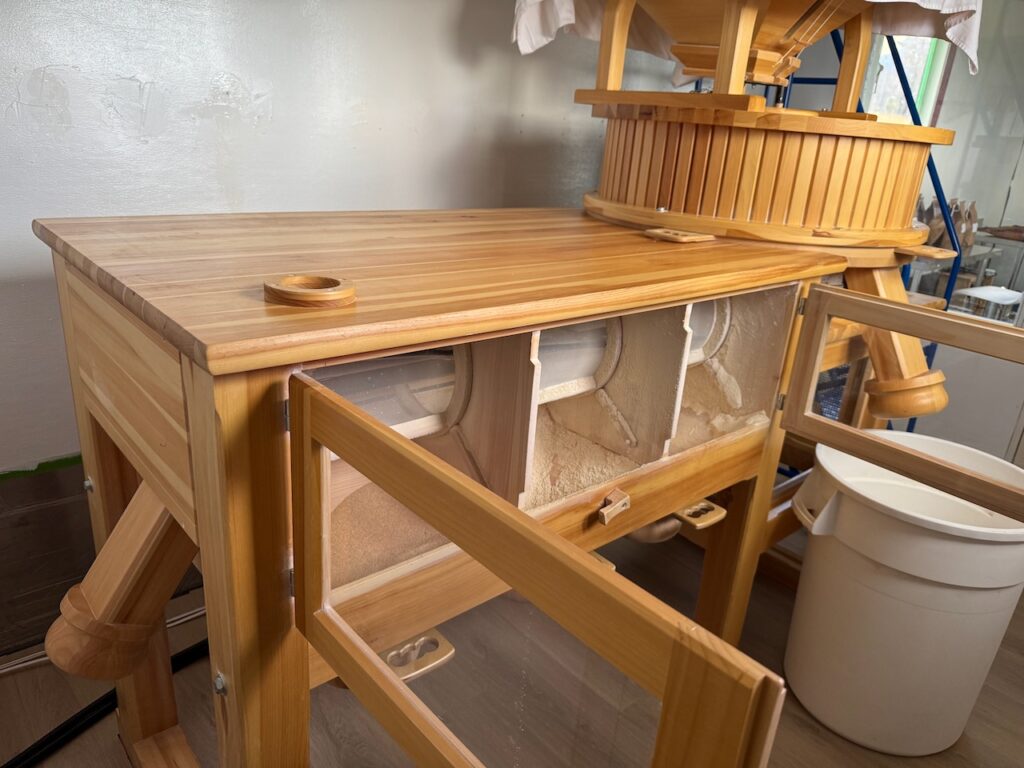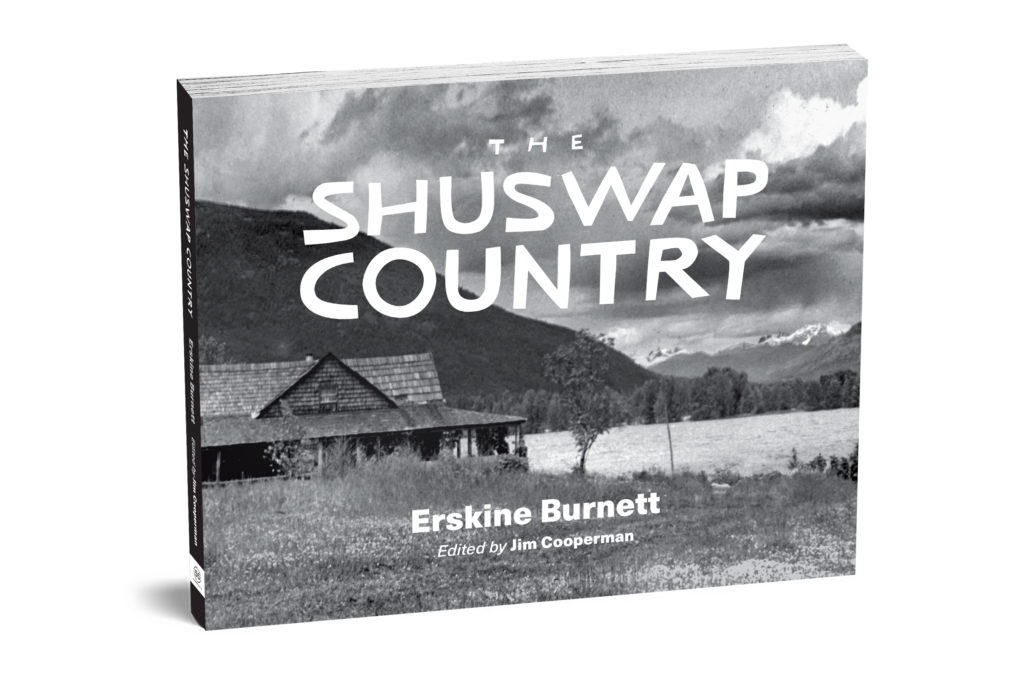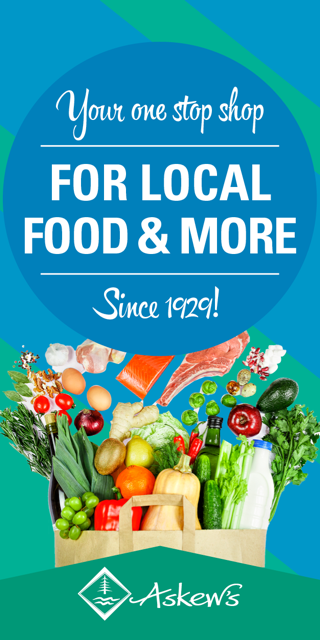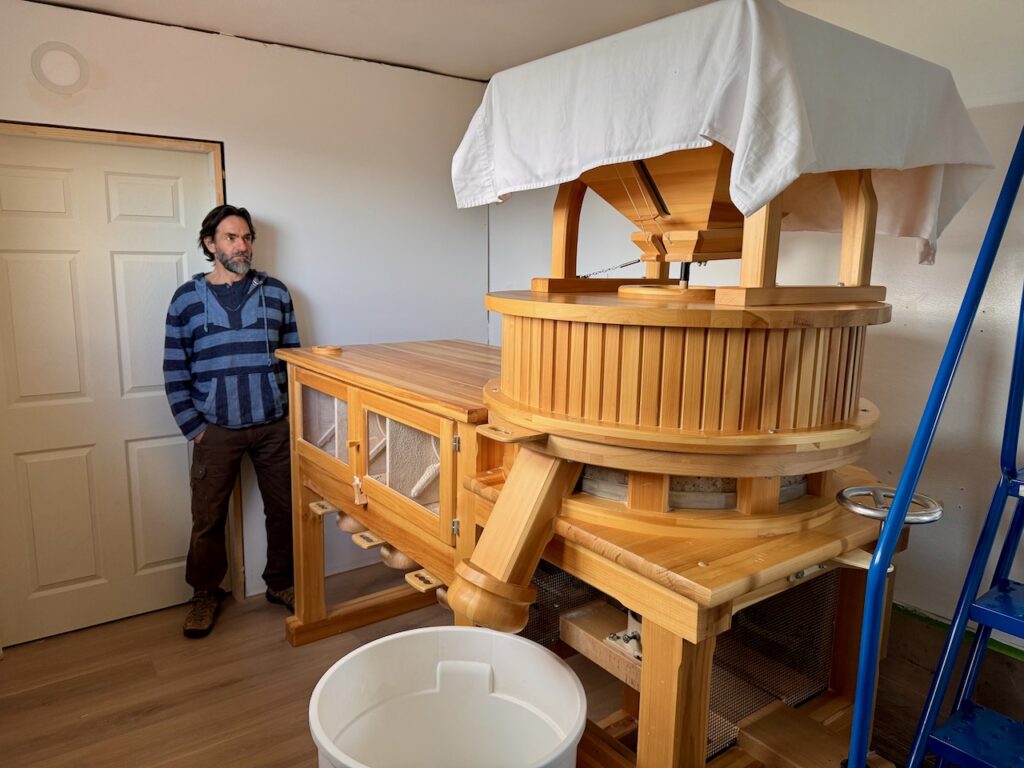
Given the potential for major disruptions to the supply system from climate chaos, as well as from political and economic instability, food security has become a major concern in the twenty-first century. To address this issue locally, farmer Jade Shamen and his partner Isabelle along with a farming couple from Salmon Arm, have formed a new organization, FRIES (Food Resources, Infrastructure and Education Society). To achieve their ambitious goals, one of their first projects is the development of a local flour mill, to provide healthy, organic stone ground flour from locally grown, heritage grains.
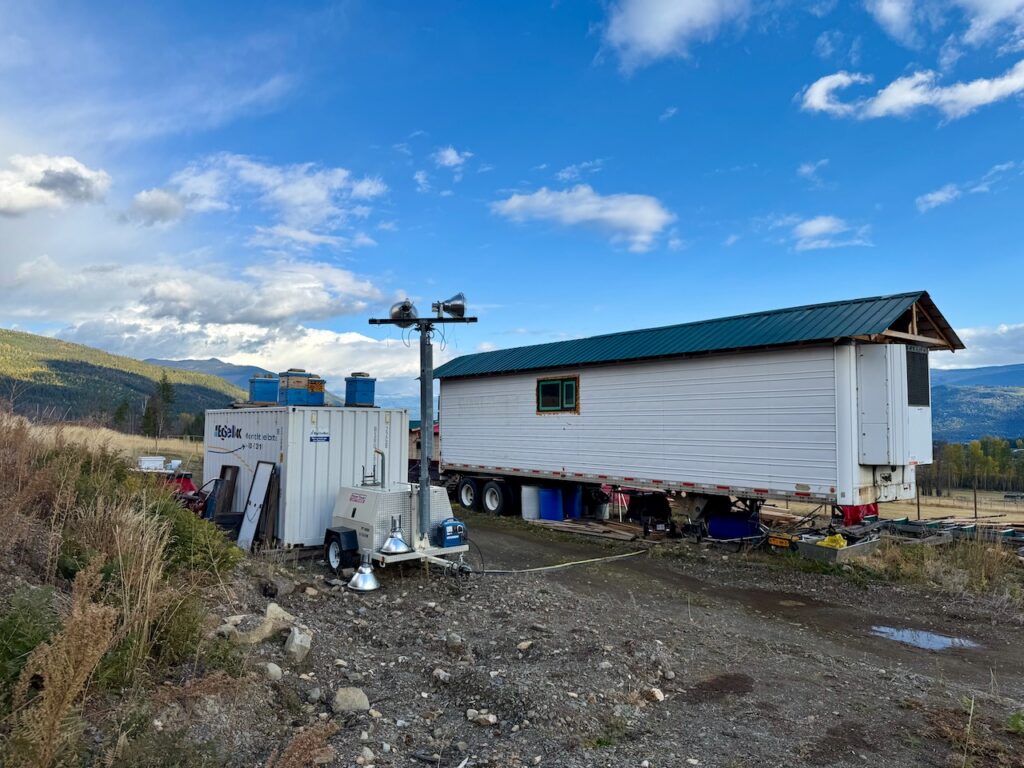
Their Shuswap Four Mill began operations this summer on Jade and Isabelle’s rugged hillside property at the far end of Evans Road above Celista in the North Shuswap. Jade has converted a reefer trailer into a commercial food operation with a room for the mill and another for packaging. Imported from Austria, the exquisitely crafted, hardwood mill uses a powerful motor and granite millstones that retain more nutrients, fibre, and flavour because the process is slower and cooler than high-production steel roller mills. In one hour, their mill can produce 200 lbs of flour, including fine, medium and bran.
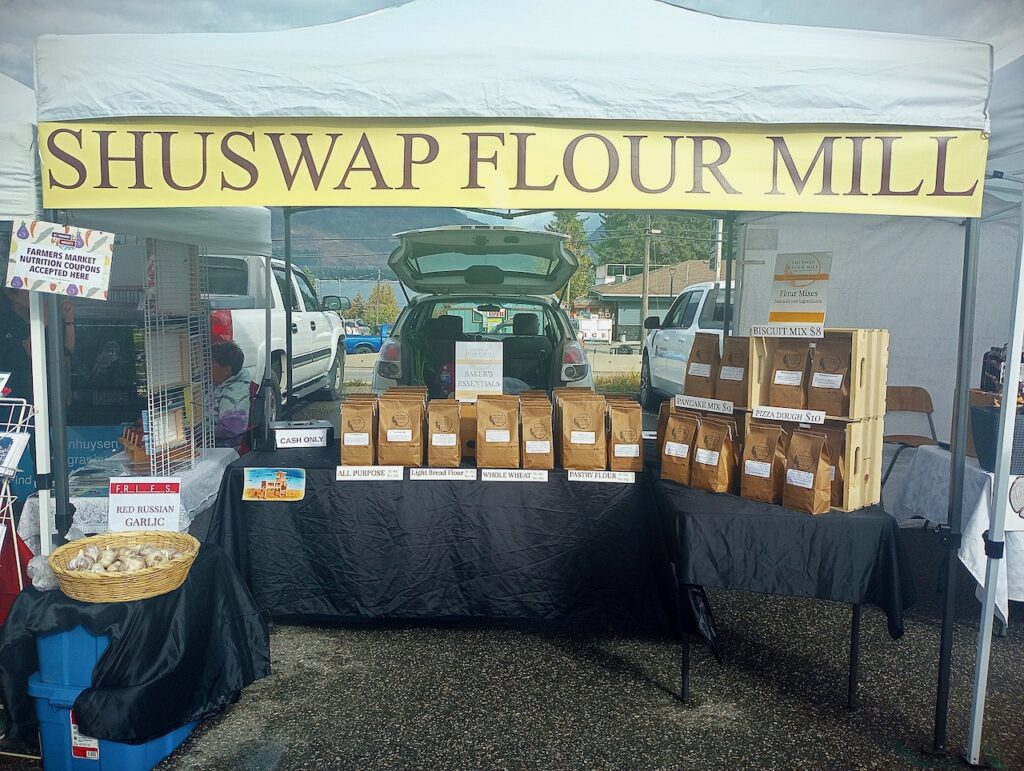
This summer their flour was sold at two farmer’s markets, with many very positive reviews from repeat customers who appreciate the authentic taste and quality of this freshly milled flour. It is now available in Scotch Creek at Rustic & Refined and at Goodness Blind Bay Health Foods and with projected production increases it will be available in more stores next year. Isabelle has developed the flour products now available, including all-purpose flour, whole wheat flour, light bread flour, spelt flour, and rye flour, as well as mixes for pancakes, pizzas and biscuits.
Currently, the grain for the mill is sourced from Spallumcheen based, Fieldstone Organics, founded in the 2000s by a group of organic farmers who wanted to grow and market ancient grains. This company cleans and markets over 25 varieties of grains and legumes sourced locally and from Western Canada.
To achieve their goal of fostering a sustainable and thriving community, FRIES is working with five local farmers who plan to grow organic grain for the mill next year. It will be stored in five 14-foot-tall silos adjacent to the mill trailer and will be cleaned using specialized equipment. Jade also plans to use bins on wheels to bring the grain inside the trailer where an auger will move it into the hopper. Currently, the operator climbs a step ladder carrying a bucket of grain and dumps it into the hopper.
FRIES also has two other projects underway. The first is a farm equipment cooperative with a growing number of implements that are loaned out to support new farming operations. They are also fostering the production of potatoes with specialized machines to plant, grow and harvest the spuds, which is an excellent crop to grow in newly tilled soil.
There are only six other flour mills in the province, The large Rogers Foods Mill in Armstrong and five small mills in Enderby, Penticton, Prince George, Nelson and Vancouver Island. Besides contributing to local food security, The Shuswap Flour Mill will help contribute to our reputation as an agricultural region with unique, quality products, as well as improve our food security. FRIES is keen to attract more farmers to become partners in the flour milling operation by growing wheat and other grains for the mill.
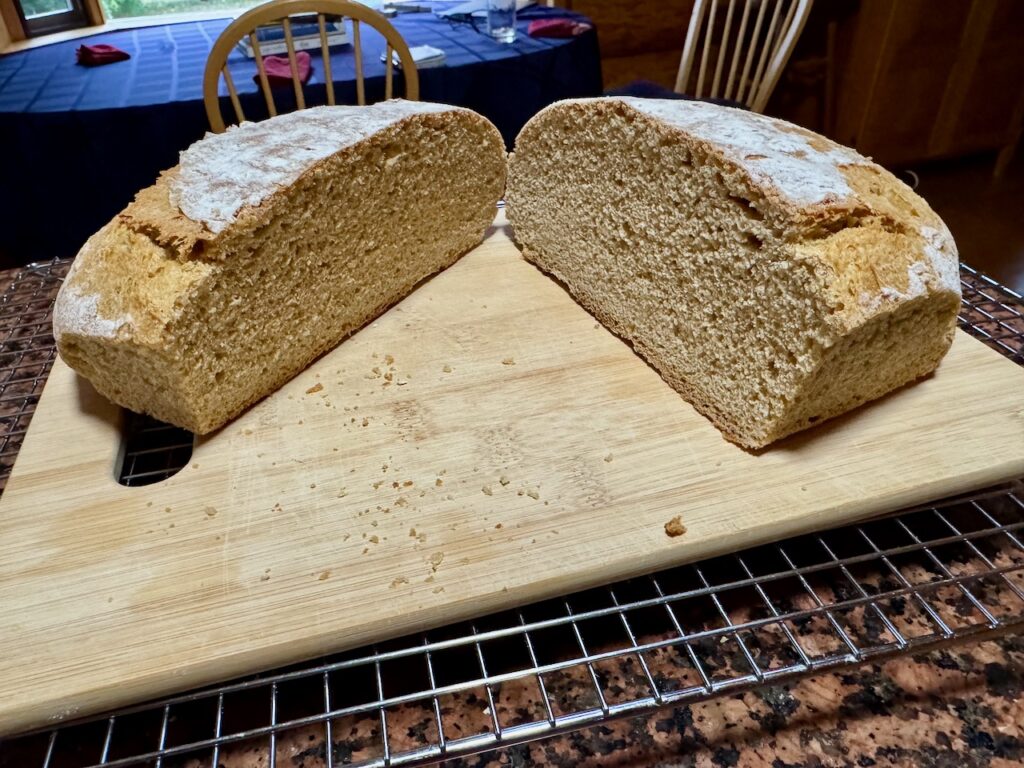
While there are thousands of acres of rich farmland in the Shuswap region, too much of it is underutilized for grazing or for growing hay for inefficient beef production. If the Shuswap were ever to become more self-sufficient, more fields need to be used for growing vegetables, legumes and grains. Also, we need locally based small-scale processing plants, so more of the food we consume is grown, processed and sold here, thus eliminating expensive, carbon intensive, shipping. FRIES is moving forward to make this sustainable, local food production vision a reality.
POSTSCRIPT
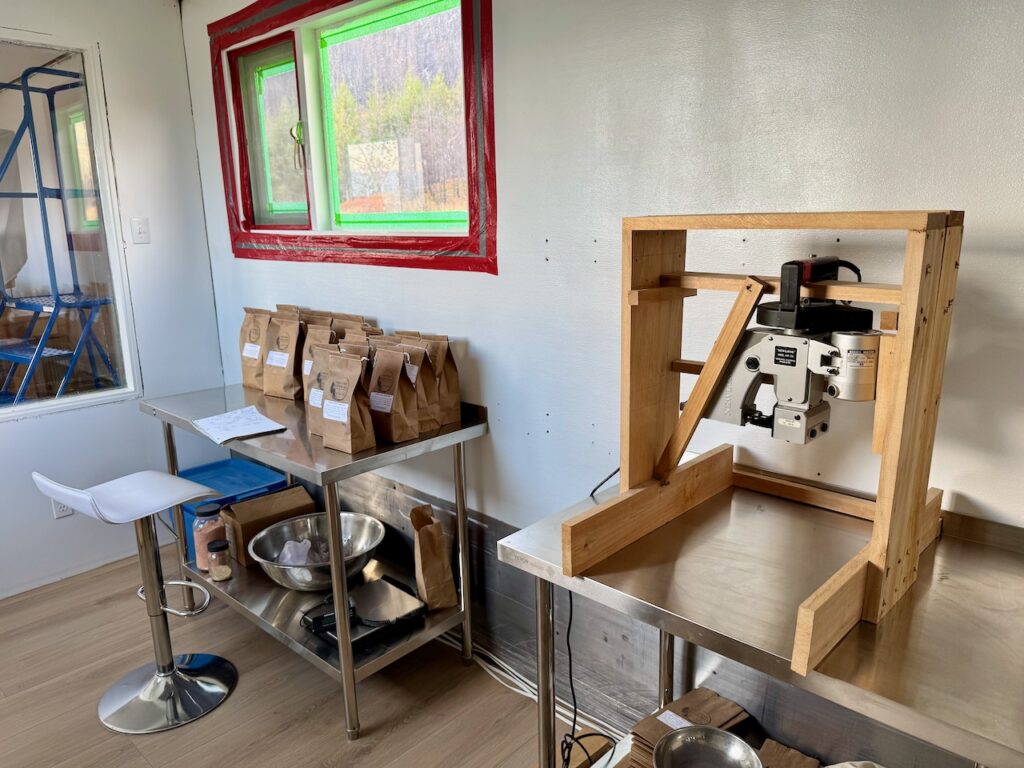
The Shuswap has more than enough quality farmland to grow all the food needed for our local communities, however there any many obstacles that prevent sufficiency, with the primary one being that most people want to consume food that is either highly processed or is grown to the south of us. Achieving self sufficient food security would require most people revising their food preferences and diets. A case in point is the typical head of lettuce in the winter that comes often from Mexico, which could easily be substituted with cabbage grown in the Shuswap and stored underground in a cold cellar, along with carrots, beets, potatoes and other root groups. Micro greens can also be grown year round under lights and could become a nutritious part of our diet.
You can learn more about the Shuswap Flour Mill from their website
